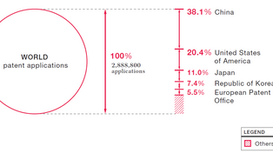Let's know more about copyright !
- MYCrave Consultancy
- Sep 2, 2017
- 2 min read

What is Copyright?
A copyright is a form of protection provided by the laws of the government to the authors, artists, etc. of "original works.”
What can be Copyright?
literary works
musical works, including any accompanying words
dramatic works, including any accompanying music
pantomimes and choreographic works
pictorial, graphic, and sculptural works
motion pictures and other audiovisual works
sound recordings
architectural works
What is Not Protected under Copyright?
•Ideas, concepts, or discoveries
•Titles, names, short phrases, and slogans
•Works consisting entirely of information that is commonly available and contains no originality
•Anything written or created by the government.
What is infringement?
•Use of whole or part of an image without permission;
•Use beyond the scope of a license;
•Adapting an image without permission (art rendering, collage);
•Asking another photographer to recreate the image.
Popular Copyright Myths?
Public Domain is very misunderstood-since 1978 copyright attaches upon creation. Cannot assume that any work on the internet is public domain. The formality of copyright notice is no longer required under US law and never required in most foreign countries, one cannot assume that any work without notice can be used. these are some Myths people have nowadays....
•If it’s on the internet it is in the public domain and therefore free
•If there is no copyright notice, I can use the image
•If I alter the image I don’t need permission
•If I don’t profit from it, I can use it
•If I only use a part of the image I don’t need permission.
Rights of the owner control?
These rights are exclusive to the owner and permission is needed Copyright is like owning a bundle of sticks (like pick up sticks). You can give different users different rights. The same image can be used on a magazine cover, in an advertisement or incorporated in a documentary film, for example.
•Make copies of the work
•Distribute copies of the work
•Perform the work publicly (such as for plays, film, or music)
•Display the work publicly (such as for artwork, or any material used on the internet or television)
•Make “derivative works” (including making modifications, adaptations or other new uses of a work, or translating the work to another media).
Advantages of Copyright.
•A copyright creates a public record of the copyright claim.
•Copyright grants the owner the right to sue for copyright infringement.
•Registration within five years of publication creates prima facie (true on its face) proof that the copyright is valid.
•The owner of a registered copyright receives a certificate of registration.
Copyright safe zone..
The copyright law provides that reproduction "for purposes such as criticism, news reporting, teaching (including multiple copies for classroom use), scholarship, or research" is not an infringement of copyright.
To know more please do visit MYCrave Consultancy & Services






































Comments